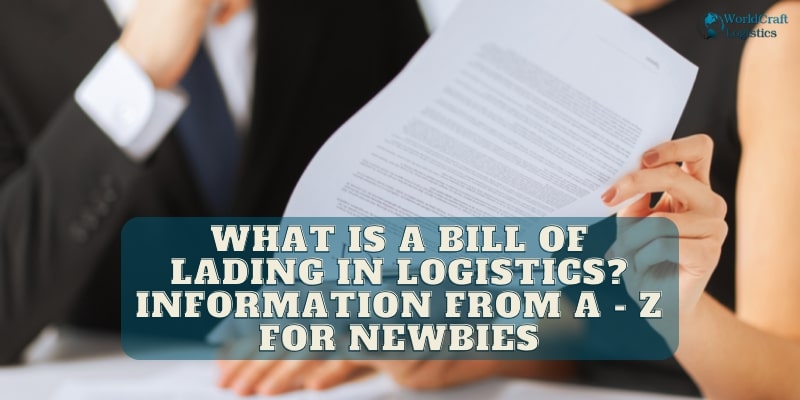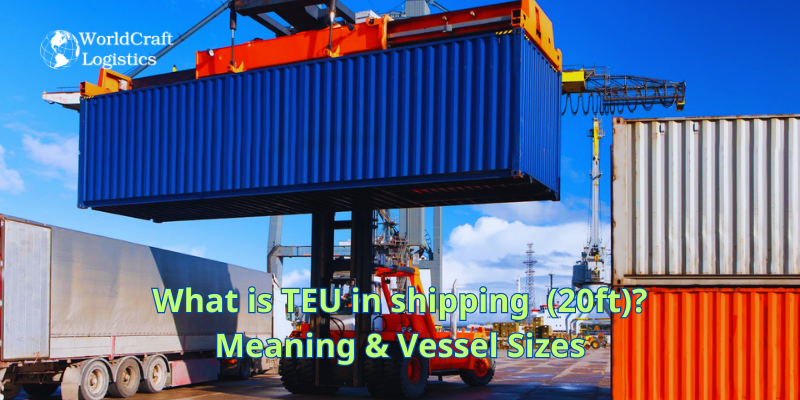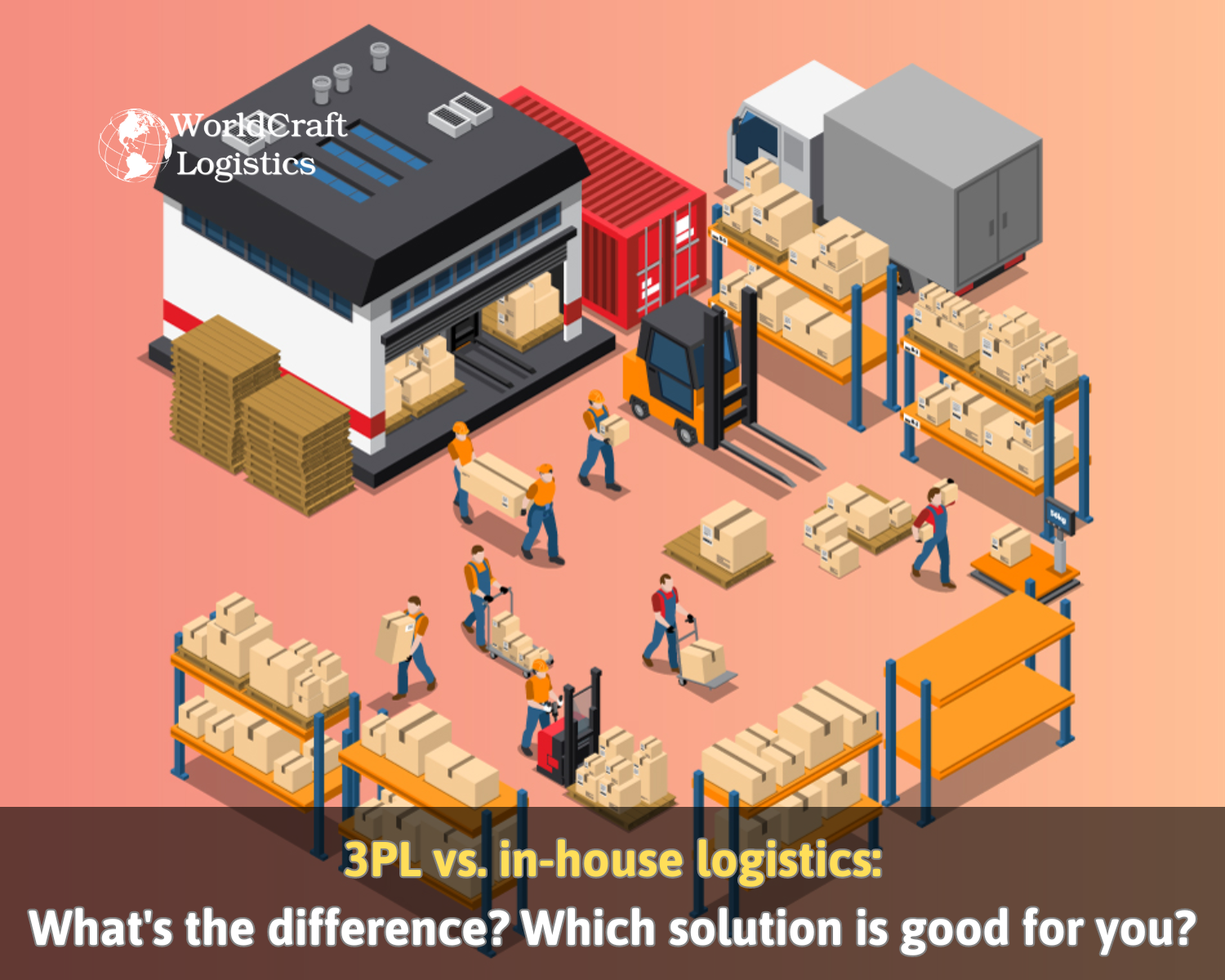The declared value of a package emerges as a pivotal determinant in international shipping costs, exerting a significant influence on the overall expenses involved. Accurate and honest reporting of the shipment's value holds paramount importance for various reasons.
It's crucial, however, to distinguish the declared value from the insurance liability associated with the shipment, as these values serve distinct roles. This necessitates a deeper exploration of what a value declaration entails, an examination of how different couriers handle this aspect, a clarification of its disparities from insurance, and an understanding of its impact on customs procedures. Through a comprehensive exploration of these facets, this article of Worldcraft Logistics aims to provide clarity on the intricate dynamics shaping the landscape of international shipping.
1. What is Declared Value?

Declared value encompasses two distinct concepts:
- The declared value represents the valuation assigned to imported goods by the importer during the clearance process at the port of entry. This declared value serves as the basis for calculating the duty to be paid on the imported goods.
- The declared value is also the monetary amount communicated by a shipper to the carrier, indicating the worth of the shipment. Should any loss or damage occur during transportation, the carrier is obligated to compensate the shipper based on the declared value.
Take, for instance, major courier services such as FedEx and UPS, which typically establish a default declared value of $100 unless otherwise specified by the shipper. However, it's important to clarify that this declared value doesn't equate to the insurance liability for the shipment; rather, it represents the financial legal liability associated with the package.
The significance of this declared value varies depending on the courier company chosen. UPS utilizes it to determine the maximum financial liability for loss and theft recovery, while FedEx employs it as the basis for insurance coverage. Understanding these nuances is crucial for shippers to navigate the intricacies of each courier's approach and ensure appropriate coverage for their shipments.
If you are new to the logistics industry or you are a business owner who wants to grasp information about documents related to goods, you should not miss the articles below:
2. How to calculate the correct declared value?

Two distinct methods are employed for calculating the value of shipments, with one based on the cost price and the other on the retail price. When declaring the value for personal consignments, it is imperative to use the cost price, representing the amount at which the item was purchased. On the other hand, for customs declarations in the context of retail shipments, the declared value should reflect the price at which the sender intends to sell the item.
Declared value = cost of purchase of the item
The declared value for customs = price at which the item is sold
These divergent approaches emphasize the importance of aligning the declared value with the specific nature of the shipment. Whether utilizing the cost price for personal consignments or the retail price for commercial transactions, adherence to these guidelines ensures accurate and compliant customs declarations. Shippers must be cognizant of these considerations when calculating the value of their shipments to facilitate smooth and lawful international trade.
3. Declared Value vs. Cargo Insurance

Declared value and cargo insurance are distinct concepts in the realm of shipping, each serving different purposes and providing unique forms of protection.
Declared Value
- Definition: The declared value of a shipment refers to the monetary worth assigned by the shipper to the goods being transported. It is a crucial element in customs declarations and is used for various purposes, including determining import duties and taxes.
- Purpose: The primary purpose of declaring a value is to provide authorities and carriers with information about the financial worth of the goods being shipped. This helps in assessing the applicable taxes, duties, and establishing the carrier's maximum liability in case of loss or damage.
- Impact on Costs: While the declared value can influence shipping costs, it does not represent insurance coverage for the shipment. It is essentially a financial liability associated with the package.
Cargo Insurance
- Definition: Cargo insurance is a separate and specialized type of insurance that provides coverage for the loss, damage, or theft of goods during transit. Shippers can purchase cargo insurance to protect their shipments against unforeseen events.
- Purpose: The primary purpose of cargo insurance is to mitigate financial risks associated with potential losses during transportation. It offers comprehensive coverage, including damage due to accidents, theft, or other unforeseen events.
- Impact on Costs: Cargo insurance is a separate cost that is not influenced by the declared value. Shippers can choose the extent of coverage based on their needs, and premiums are determined accordingly.
Key Differences
- Nature of Coverage: Declared value establishes the financial liability of the package and influences duties and taxes, while cargo insurance provides protection against physical loss or damage during transit.
- Cost Calculation: Declared value is often a component in determining shipping costs, whereas cargo insurance is a separate, optional cost.
- Liability: Declared value represents the financial responsibility of the shipper, while cargo insurance transfers the risk to the insurance provider.
In summary, while the declared value is integral for customs and carrier liability, cargo insurance offers a more comprehensive and specific form of protection for the actual physical goods during transit. Shippers often need to consider both aspects to ensure adequate coverage and compliance with shipping requirements.
4. 7 key benefits of declared value can protect your shipping

Declaring the value of your shipment can provide several forms of protection for your shipping process. Here's how declared value can protect your shipping:
4.1 Customs Compliance
Accurate Assessment of Duties and Taxes: Declaring the correct value ensures that customs authorities can accurately assess the applicable import duties and taxes on the shipment. This helps in complying with international trade regulations.
Avoiding Penalties: Providing an honest and accurate declared value helps in complying with legal requirements. Incorrectly declaring values may lead to penalties, delays, or even confiscation of the shipment by customs authorities.
4.2 Carrier Liability Limitation
Determining carrier liabilit, he declared value is often used by carriers to establish their maximum financial liability in case of loss, damage, or theft of the shipment during transit. This sets clear expectations regarding the carrier's responsibility.
4.3 Insurance Considerations
Basis for Insurance Coverage, the declared value may serve as the basis for calculating insurance coverage for your shipment. Although the declared value itself is not insurance, it can influence the amount of coverage you choose to purchase.
4.4 Risk Mitigation
Risk awareness when accurately declaring the value of your goods allows all parties involved, including carriers, insurers, and customs authorities, to be aware of the financial value at stake. This transparency helps in managing and mitigating risks associated with the shipment.
4.5 Claims Processing
Streamlined claims in the unfortunate event of loss or damage to your shipment, declaring the correct value simplifies the claims process. It provides a clear basis for filing a claim with the carrier or insurance provider, facilitating a smoother resolution.
4.6 Customer Trust
Transparent transactions accurate declaration of the value enhances transparency in your business transactions. This can contribute to building trust with customers, as they are aware of the declared value and associated financial considerations.
4.7 Loss Prevention
Knowing the value of your shipment allows you to make informed decisions about packaging, handling, and transportation methods. This proactive approach can help prevent losses or damages during transit.
In summary, declaring the value of your shipment is a crucial step in the shipping process that offers protection in terms of customs compliance, carrier liability, insurance considerations, risk mitigation, and overall transparency in your business transactions. Accuracy and transparency in declaring values contribute to a smoother and more secure shipping experience. If you need more detailed information or advice, please contact https://worldcraftlogistics.com/





